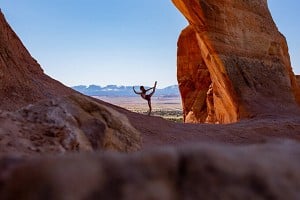
Paraclimber Jeantique Hommel writes about the development of paraclimbing in the UK, and shares resources for those wanting to get involved.
The paraclimbing community is a community like no other. In the UK paraclimbing scene, I find myself alongside the most diverse folk from all walks of life. Among us are blind climbers, climbers with limb differences and those with brain injuries or mobility impairments. There are also climbers with a whole range of invisible disabilities, such as neurological conditions, connective tissue disorders and deaf/hard of hearing climbers. Importantly, though, paraclimbing doesn't just involve climbers with physical health conditions; it extends to those with mental health problems, learning disabilities or other forms of neurodivergence, such as autism and ADHD.

Our community is also rapidly growing and changing. Over the last few years, there have been big changes to the classification criteria that dictate whether or not a climber is eligible to take part in formal national and international paraclimbing competitions. As these rules have become more stringent, many climbers who used to feel welcomed and accepted in these spaces have felt pushed out of the sport.
These changes have come at a time when there is more emphasis on the rights and needs of disabled people in society than ever before. And so, disabled climbers from all over the UK have taken matters into our own hands, and created a new type of community that exists outside of the competitive paraclimbing scene. It is one that truly has no bounds.
In the space of just a few years, numerous paraclimbing initiatives have popped up and continue to appear all over the UK. The shared attitude of these new communities is one of genuine acceptance. No one is required to have a specific diagnosis, to explain their situation, nor to provide evidence for their condition. No one is expected to squeeze into a narrow box of disability, or to be "the right kind" of disabled. Instead, anyone who might benefit from being included in the paraclimbing world is encouraged and supported to get involved. If someone identifies as a paraclimber, then they are accepted as a paraclimber.
From Leeds Paraclimbing Club and Milton Keynes Deaf Climbers, to Club BITS (Bristol Inclusive Thrill Seekers) and Adventures Await just to name a few, new clubs, charities and organisations across the UK are growing both in number and in impact. Many of these initiatives run a range of paraclimbing events for people of all ages, in the form of introductory climbing sessions, regular paraclimbing socials, or adaptive coaching classes taught by disabled instructors. Sessions include bouldering and roped events, can take place indoors and outdoors, and have formats varying from informal drop-ins to comp-style simulations to weekend getaways.
The great thing is that most if not all of these initiatives are run or informed by paraclimbers; held up by the same group of people they are intended to serve. As a result of this, by using our own experiences of navigating the world as disabled individuals, we are in a unique position to support our fellow paraclimbers.
Even though the full range of climbing abilities and grades exist within the paraclimbing community, when we are together the focus is not on a specific outcome such as a grade or number. As a community, we don't focus on topping or flashing a route or achieving a certain grade in order to feel a sense of accomplishment.
Instead, we naturally prioritise factors related to one another's personalities and efforts, and we celebrate each other's endeavours unconditionally, and focus on the experience as a whole. Even if that looks like recognising someone's bravery for simply turning up to a session, or for listening to our bodies and taking a rain check that day, there is always a level of understanding that exists between us. Whatever is going on, there is a real sense of empathy, good spirit, and gentleness among us.
Kamran Ullah is just one climber among many who have felt the benefits of this. "Climbing has literally got me out of the house, where I spent most of my 20's," he said. "The friendly and accepting nature of the paraclimbing community in particular has supported me when I felt like I couldn't climb by myself."
This word and the very concept of "acceptance" is one that frequently comes up when talking about paraclimbing. Marie Uri is a paraclimber and co-director of United We Climb, a community organisation that supports and promotes equitable experiences and opportunities in climbing and the outdoors. "It is really important to provide a safe space but also have a clear understanding of the paraclimbing community as a whole," she said. "It is amazing to have the opportunity to visit walls that accommodate disabilities, people with mental health problems and neurodiverse people. It makes such a difference when a climbing wall understands why the music needs to be lower, or when staff understand the need to be a bit more flexible with people with different needs."
"I realise I have been more outspoken on social media about having dyspraxia and talking about how my chronic illness can affect me since I have met other paraclimbers," she added.
Marie's experience of using social media as a positive tool to find and express her voice as a paraclimber is just one positive of many that the online world can provide. In fact, one of the main drivers for the rapid growth of the paraclimbing community in the UK has no doubt been the use of social media. Many climbers use Instagram, Facebook and other platforms to share their climbing journeys, and it is often an intuitive place for new climbers to go to connect with the community.
There is a strong sense of camaraderie online, akin to what exists at in-person events. In the same ways that paraclimbers are challenging the status quo on the wall, a similar process is happening across social media platforms. Members of the community are taking action to change the algorithm; to show that anyone who climbs is a real and valid climber, and that you don't have to be flashing V8s or campusing on crimps with your shirt off to be deserving of space online. Efforts from accounts with wider audiences to feature paraclimbers or paraclimbing organisations have also been increasing, with many people who previously had little awareness of paraclimbing showing interest and engaging in dialogues in support of disabled climbers.
Social media accounts can also be a great way to start and facilitate difficult conversations, for example around issues such as eating disorders within the climbing industry, or experiences of disability discrimination at climbing centres. The intention of these conversations is not to humiliate or cause harm, but to give voices to climbers whose experiences might not otherwise be known. With greater awareness and understanding, more action can be taken to improve the experiences of climbers across the spectrum.
For example, numerous climbing walls have taken on feedback about how difficult it can be for many climbers to get down from a bouldering wall safely, and used this feedback to implement more tailored guidance around setting down-climbs to tackle this issue. By putting in just a little bit of time and effort, it can completely change a person's climbing experience for the better. Of course, there is still a long way to go, but it is certainly a start to see underrepresented communities taking up more space in climbing — and an added bonus when this is so positively received by the wider climbing community.
It is evident that making climbing spaces more inclusive and accessible doesn't just help paraclimbers; it is everyone who benefits. Setting down climbs is just one small example of this, as it makes getting down from a bouldering wall easier for anyone who doesn't want to destroy their knees by jumping from metres above the ground!
The culture and ethos shared in paraclimbing communities have huge positive ripple effects on the whole climbing community. Paraclimbers are breaking down barriers within climbing simply by taking up space in the climbing world, and are showing the whole community that you don't have to look, behave or climb a certain way in order to be a climber. Anyone who climbs deserves their place in climbing, regardless of our body, mind, grade, ability, disability, or any other differences. This extends to other underrepresented and underserved groups too. Whatever your race, religion, age, sexual and gender identity, body shape and size, class, and anything else, you deserve a space in the climbing community.
Speaking to Siddrah Aslam, founder of ClimbMuz and close ally of the London-based paraclimbing community, this has certainly been her experience. "Since meeting people through [paraclimbing] socials I've felt a lot more accepted as a climber," she said. "My fear had been crippling me since I started climbing in my 20's. Although I kept pushing through with small achievements, I never felt accepted - or maybe I just didn't accept myself as I was around people who were grade-focused climbers. It's nice to meet a mixture of climbers, with a whole different mentality."
Yasmin Kenny, who is a paraclimber, trainee psychologist and also a co-director of United We Climb, shared a similar experience of meeting other paraclimbers and how doing so has helped her: "It has definitely helped me to feel more accepted, comfortable and find my little niche within the ever-growing climbing community! And it is a place where I feel I can also have an impact too."
Anna Foo, member of the GB paraclimbing team, echoed Yasmin's sentiment. "For me the community within paraclimbing has been the most supportive and inclusive space I have ever been in," she said. "It's the main thing that has had the most positive impact on how I see myself as a blind person. We genuinely embody true inclusion and it's a really special thing to be a part of. It shouldn't feel this unique, but it does."
Adam Smith runs a number of paraclimbing socials and is an active member of the London paraclimbing community. "When I moved back to London I didn't have much but I started to climb again, and when I found the paraclimbing community it opened a whole world to me," he said."I made a lot of amazing and very close friends and gained a lot of support and acceptance. The community holds a special place in my heart."
Whether it's a sense of purpose and fulfilment, a coping mechanism, a reason to get out of bed, a way to make friends or socialise with others who 'get it', a form of physical rehab or therapy for the mind, a means to improve one's sense of confidence and self-esteem, or anything else, it is clear that the paraclimbing community serves many purposes on top of solely providing an opportunity to climb. It is exciting to think about the future of the community given all the fantastic work that is being done by paraclimbers across the UK.
If you are someone who is new to the world of paraclimbing (whether you identify as a paraclimber or not) and would like to know more, start by following as many disabled climbing accounts as you can across social media and take a look at what is out there.
The @uk.paraclimbing.collective is an Instagram account dedicated to all things paraclimbing across the UK, and a good place to start if you are interested in learning more about the community and its members.
The ABC (Association of British Climbing Walls) have also released a document titled 'Everyone Is Welcome in Climbing', which is a fantastic guide for walls and others in the climbing industry to reduce barriers to participation and make every climber feel welcome.
Below is a more comprehensive list of paraclimbing initiatives and inclusive climbing accounts to follow on Instagram in the UK. This list is by no means exhaustive:
• @club.bits
• @eds_climbers
• @cam_climbing
• @climbersagainstcancerofficial
Follow Jeantique on Instagram.





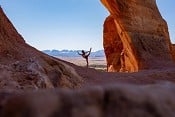
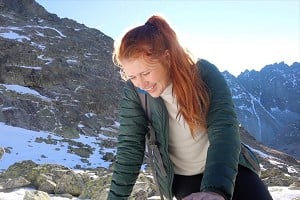



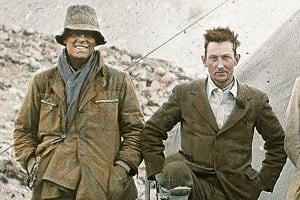

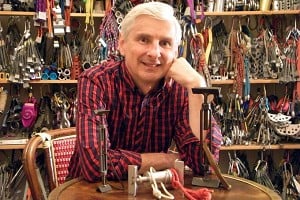
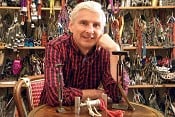




Comments